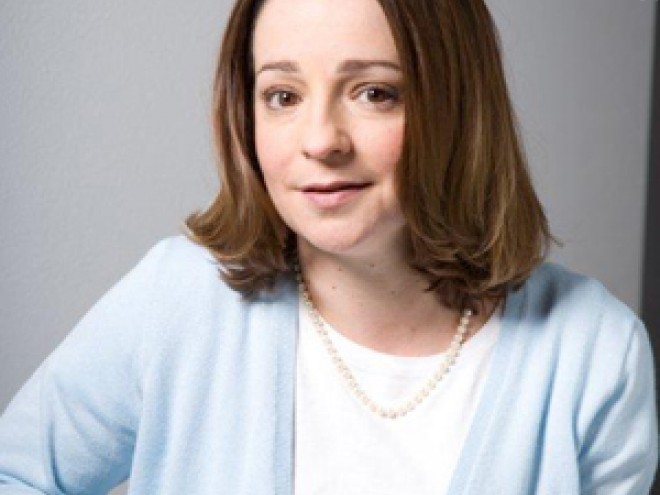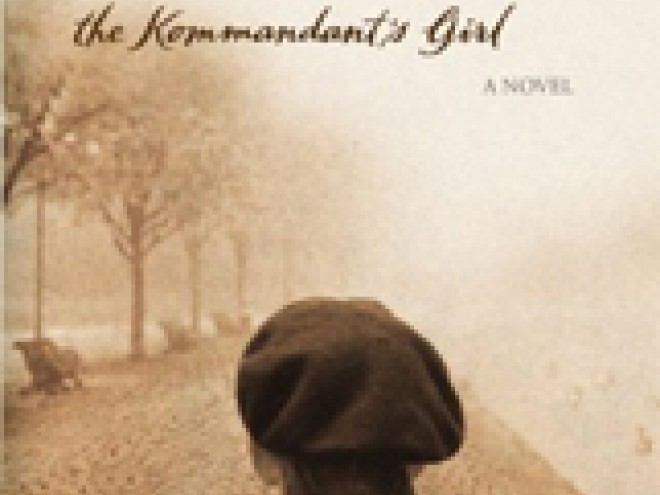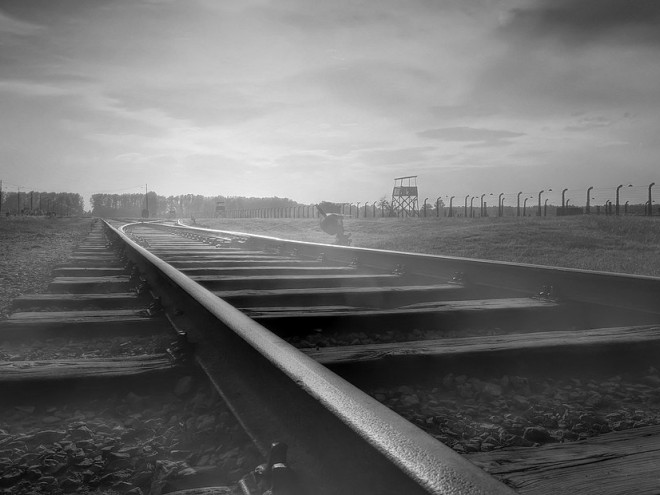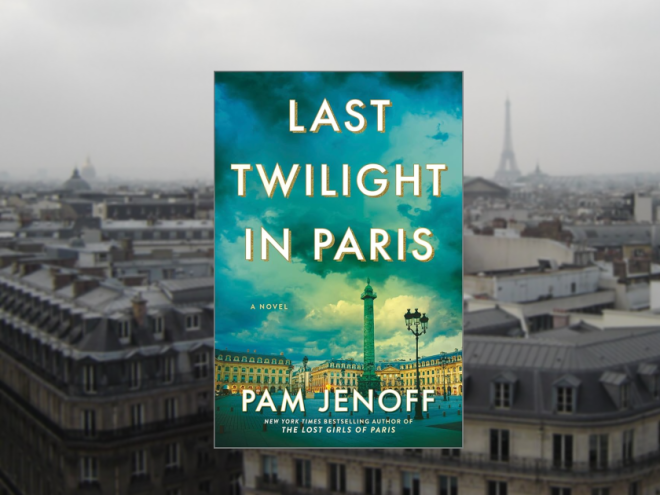In this three-part series for the Visiting Scribe, internationally bestselling novelist Pam Jenoff explores how her years in Poland changed her life and led her to writing books. Read Part I: Living the War here and Part II: Writing the War here.
 I speak to Jewish audiences across North America about by experiences and books. One of the questions I’m asked most frequently is: What about the Jewish community in Poland today? Some people are surprised that there is a community, while others want to know about what their lives are like and whether there is anti-Semitism.
I speak to Jewish audiences across North America about by experiences and books. One of the questions I’m asked most frequently is: What about the Jewish community in Poland today? Some people are surprised that there is a community, while others want to know about what their lives are like and whether there is anti-Semitism.
Candidly, I don’t know about the current situation from a first-hand perspective. When I left Poland in 1998 there were a few thousand Jews. The first rabbi had just been brought back to Krakow. Every milestone was big – the return of a Torah, a single Jewish baby being born. Every death was a major tear in what was left of the community. (I only saw my father cry twice in his life, and once was outside the Remuh Synagogue in Krakow when they pulled him in to complete the minyan.)
It has been 16 years since I left and I know from friends and from reading that the Jewish community in Poland is stronger than at any point since the Second World War. There are multiple rabbis and a new Jewish Community Center funded in part by Prince Charles. The sense of “last Jew out of Poland switch off the lights” is largely gone. I don’t believe that Krakow will ever be Brooklyn or Cherry Hill again, but it is like a Jewish community in the Midwest or Deep South, small but enduring.
There are reasons for the Jewish community being stronger now: I credit the Jews who stayed through the dark years of communism (many of whom had the chance to leave) and organizations like the Lauder Foundation that have invested in revitalizing Jewish life throughout Eastern Europe. Important, too, was the property restitution law passed in 1997, giving the communities back their synagogues, cemeteries, and buildings (which they can use or else rent or sell and use the proceeds to help their people). I also think anecdotally that there has been an influx of Jews from points farther east where no viable Jewish community remains.
Of course, there are challenges. I believe that progress on Jewish issues stalled after Poland entered NATO and that was no longer available as a carrot. After 9/11 the world’s focus shifted away from Eastern Europe and many issues remain unresolved. And ironically the greatest struggle for the Jews of Poland today may be themselves: different groups in Poland’s Jewish community are fighting with one another over property and control of assets. (It is painful to watch these struggles among a people whom I love and adore, that should be standing strong together; it’s like seeing relatives fight.)
Anti-Semitism in Poland is a harder question. I lived there openly as a Jew for 2 ½ years without incident. The Jews I knew in Poland live their lives in relative peace, without the threat of terrorism Jews face in Western Europe. As Rabbi Jonah Ornstein, Executive Director of the JCC in Krakow wrote in a recent article, “It is easier, safer, and better to be Jewish every day in Krakow. I do not know of any other community leader in Europe who can say the same about his or her community.”
I came out of my years living in Krakow with a reasonably pro-Polish view for the people and what they suffered, an occupied country that lost so many of its own of people during the war. (Not always the most popular view: an observer at one event commented that when I spoke positively of my time in Poland, the Hadassah ladies with their questions seemed intent on making me cry.) But I recognize the complicit role of Poles in the centuries of anti-Semitism that preceded the war, in atrocities like Jedwabne and in acts after like the Kielce pogrom. I also recognize that there are more Poles listed as Righteous Among Nations at Yad Vashem for helping Jews than any other nationality. I wonder what I might have done as an ordinary Pole: would I have been strong enough to help?
At this point in my talk, someone always raises his or her hand and tells a story of some young person on the March of the Living who encountered graffiti or a slur from a local near Auschwitz. I bite my tongue not to point out that if I saw hundreds of teenagers in blue jackets marching down the street of my small town and singing, I’d be nervous too. But in all seriousness, part of the issue is that these groups too often just visit the camps and leave. I urge people who go to meet locals and build bridges. Because we may never agree about what happened in the past, but I think that the key is to engage the younger generation.
Many Jews will never be able to make peace with Poland. But I’m brought back to an answer I once heard an Orthodox rabbi from Britain give when asked why he kept going back: “Because our people were in Poland there for 800 years and because it is our patrimony.”
Pam Jenoff is the internationally bestselling author of six novels, including The Kommandant’s Girl. Her latest is The Winter Guest, which will be published August 26, 2014. A graduate of GWU, Cambridge and Penn Law, Pam formerly worked at the Pentagon, as a diplomat for the State Department and as an attorney. She lives outside Philadelphia with her husband and three children where, in addition to writing and speaking, she is on the faculty of Rutgers Law School.
Related Content:
- Reading List: Pam Jenoff
- The Eagle Unbowed: Poland and Poles in the Second World War by Halik Kochanski
- Shattered Spaces: Encountering Jewish Ruins in Postwar Germany and Poland by Michael Meng
Pam Jenoff is the author of several books of historical fiction, including The New York Times bestsellers The Lost Girls of Paris, The Orphan’s Tale, The Diplomat’s Wife, and The Woman With the Blue Star. Her novels are inspired by her experiences working as the Special Assistant to the Secretary of the Army at the Pentagon and as a diplomat for the State Department in Poland. These positions afforded Pam a unique opportunity to witness and participate in operations at the most senior levels of government and provided expertise regarding World War II and the Holocaust for Pam’s books.



